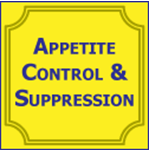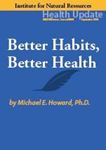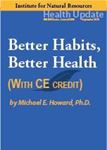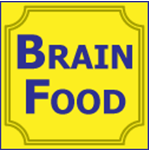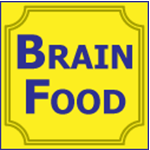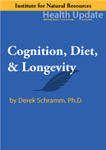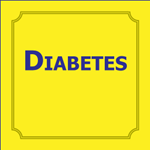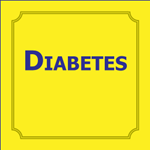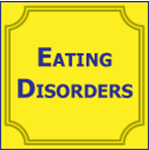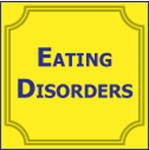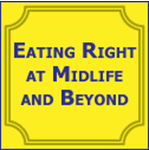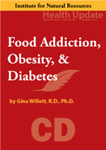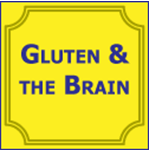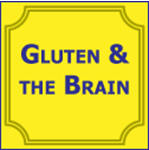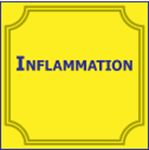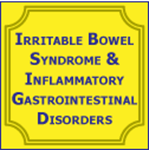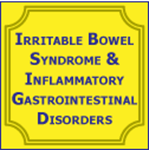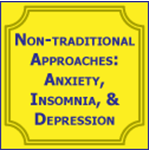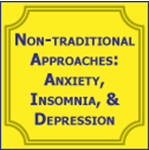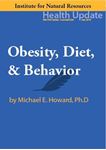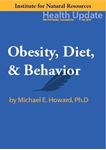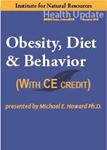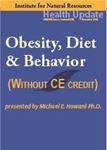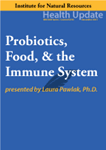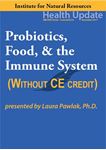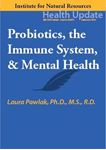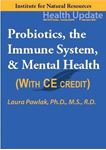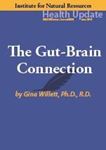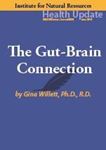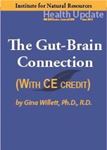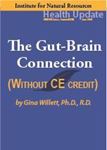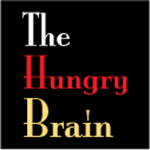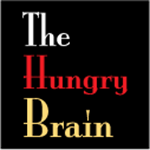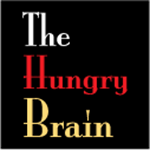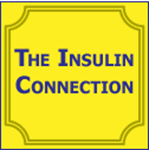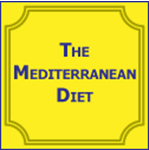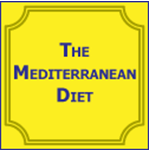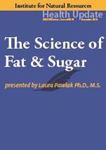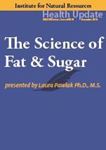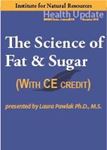You have no items in your shopping cart.
Nutrition
Antioxidants: A Balancing Act with Free Radicals
Identifies what free radicals and antioxidants are, their functions, and how they interact. Reviews the current views on biochemistry and clinical features of vitamin E and vitamin C, as well as other commonly consumed antioxidants. Discusses the most practical strategies for managing deficiencies and toxicities of antioxidant vitamins. Discusses the current scientific debate over the role of antioxidants in a variety of conditions, including age-related macular degeneration.
$30.00
Appetite Control & Suppression
Describes how appetite is normally regulated. Cites how appetite can become dysregulated and contribute to weight gain and obesity. Describes a range of factors that can influence appetite control. Identifies lifestyle interventions that can be used to regain appetite control. Identifies the role of appetitesuppressing medications.
$30.00
Better Habits, Better Health - DVD - 6 hours (w/Home-study exam)
Describes how personality types, core beliefs, and behavioral habits affect chronic illness. Discusses the most common chronic illnesses and the key factors in prevention and management. Explains how stress, anxiety, and depression influence chronic illnesses. Describes practical behavioral habits for coping with disabling chronic conditions like pain, cancer, arthritis, and other diseases. Lists ways to help patients develop healthier habits in terms of nutrition, activity, preventive medical and dental care, and emotional well-being. Describes how the information in this course can be utilized to improve patient care and patient outcomes. Describes, for this course, the implications for dentistry, mental health, and other health professions.
$83.00
Better Habits, Better Health - Streaming Video - 6 hours (w/Home-study exam)
Describes how personality types, core beliefs, and behavioral habits affect chronic illness. Discusses the most common chronic illnesses and the key factors in prevention and management. Explains how stress, anxiety, and depression influence chronic illnesses. Describes practical behavioral habits for coping with disabling chronic conditions like pain, cancer, arthritis, and other diseases. Lists ways to help patients develop healthier habits in terms of nutrition, activity, preventive medical and dental care, and emotional well-being. Describes how the information in this course can be utilized to improve patient care and patient outcomes. Describes, for this course, the implications for dentistry, mental health, and other health professions.
$83.00
Brain Food
Discusses how foods and vitamins may improve memory and brain function. Describes how the DASH and Mediterranean diets may play a key role in brain health. Explains how food choices and supplements may play a role in Alzheimer’s disease and brain aging. Describes an optimal diet for brain health.
$30.00
Brain Food - Ebooklet
Discusses how foods and vitamins may improve memory and brain function. Describes how the DASH and Mediterranean diets may play a key role in brain health. Explains how food choices and supplements may play a role in Alzheimer’s disease and brain aging. Describes an optimal diet for brain health.
$25.00
Cancer Prevention
Describes the role tobacco plays in various kinds of cancers. Identifies the impact of estrogens, and viral and bacterial pathogens, on the development of cancer. Describes the lifestyle and dietary changes that can help prevent the development of cancer. Discusses the benefits and drawbacks associated with some of the tools used to screen for cancer. Identifies the role of chemopreventive agents, and how they may be able to curtail the onset of cancer, or its recurrence.
$30.00
Cancer Prevention - Ebooklet
Describes the role tobacco plays in various kinds of cancers. Identifies the impact of estrogens, and viral and bacterial pathogens, on the development of cancer. Describes the lifestyle and dietary changes that can help prevent the development of cancer. Discusses the benefits and drawbacks associated with some of the tools used to screen for cancer. Identifies the role of chemopreventive agents, and how they may be able to curtail the onset of cancer, or its recurrence.
$25.00
Cognition, Diet, & Longevity - DVD only *NO CE - 6 hours
Explains how personality types, habits, and beliefs inuences behavior and the risk for disease. Discusses how mental disorders such as anxiety and depression aect physical health. Describes how addiction to sweet, fatty, and salty foods promotes obesity. Lists the diets shown to enhance longevity and prevent disease. Lists the causes of improved life expectancy in the United States. Explains how patients can delay or survive the top ten causes of morbidity and mortality. Describes, how the information in this course can be utilized to improve patient care and patient outcomes. Describes, for this course, the implications for dentistry, mental health, nursing, and other health-care professions.
$69.00
Diabetes
Describes the key features of prediabetes, type 1, type 2, and gestational diabetes. Identifies the hormones involved in blood glucose control. Identifies the main macrovascular and microvascular complications of diabetes and describe their underlying pathology. Describes the diagnostic tests for diabetes and outline the values defining normal and abnormal results. Outlines the pharmacologic agents and lifestyle changes in the management and prevention of diabetes.
$30.00
Diabetes - Ebooklet
Describes the key features of prediabetes, type 1, type 2, and gestational diabetes. Identifies the hormones involved in blood glucose control. Identifies the main macrovascular and microvascular complications of diabetes and describe their underlying pathology. Describes the diagnostic tests for diabetes and outline the values defining normal and abnormal results. Outlines the pharmacologic agents and lifestyle changes in the management and prevention of diabetes.
$25.00
Eating Disorders
Identifies the proper classification, co-morbidities, and diagnostic approaches to eating disorders. Outlines the etiology and prognosis in eating disorders. Discusses the issues of oromaxillary pathology observed in eating disorders. Describes the various aspects of effective management of eating disorders. Explains the unhealthy weight obsession, self-image issues, and erroneous beliefs about food, diet, weight, and health.
$30.00
Eating Disorders - Ebooklet
Identifies the proper classification, co-morbidities, and diagnostic approaches to eating disorders. Outlines the etiology and prognosis in eating disorders. Discusses the issues of oromaxillary pathology observed in eating disorders. Describes the various aspects of effective management of eating disorders. Explains the unhealthy weight obsession, self-image issues, and erroneous beliefs about food, diet, weight, and health.
$25.00
Eating Right at Midlife & Beyond
Recognizes the physiological changes that typically occur with age. Describes the programmed and error theories of aging. Recognizes the contribution of genetics to individual lifespan. Explains oxidative stress and the role of antioxidants in combating it. Lists the sources of antioxidants and the foods that provide the best antioxidant benefits. Outlines a healthy eating plan for older adults.
$30.00
Food Addiction, Obesity & Diabetes - CD format - 6 Hours
This 4-disc audio program on “Food Addiction, Obesity and Diabetes” will provide Health Professionals with a comprehensive overview of appetite regulation, food cravings & addiction, useful strategies to normalize weight and recommendations for managing diabetes. Eating disorders are typically associated with young and middle-aged patients. However, many older individuals with endocrine disorders (hyperthyroidism, Cushing’s, diabetes) experience derangements of appetite. Similarly, many patients with neurological problems (strokes, Alzheimer’s, Parkinson’s, various forms of dementia, head injury, etc.) may develop problematic cravings and other appetite changes. This course will help Health Professionals gain helpful insights into the care of these complicated patients.
$83.00
Globesity
It is estimated that 1.4 billion adults—one in three across the globe—are overweight. Registered dietitian and health writer Clare Fleishman explores surprising new suspects contributing to our planet’s expanding girth, including air conditioning, drugs, pollution, and others which get little notice as lack of will power shoulders the blame. This important work examines how we live in a new century and why obesity has become a major killer from the American Midwest to the cities of Europe and across the deserts of Africa.
$40.00
Gluten & the Brain
Discusses the role of gluten in celiac disease and non-celiac glucose sensitivity. Lists the main food sources of gluten. Identifies the neuropsychiatric components of the gut-brain link to gluten sensitivity. Describes the possible role of the microbiome in gluten sensitivity. Lists the components of a gluten-free diet. Identifies the potential disadvantages of eliminating gluten from the diet.
$30.00
Gluten & the Brain - Ebooklet
Discusses the role of gluten in celiac disease and non-celiac glucose sensitivity. Lists the main food sources of gluten. Identifies the neuropsychiatric components of the gut-brain link to gluten sensitivity. Describes the possible role of the microbiome in gluten sensitivity. Lists the components of a gluten-free diet. Identifies the potential disadvantages of eliminating gluten from the diet.
$25.00
Inflammation
Inflammation, in its broadest sense, is the body’s response to tissue injury. Acute inflammation is typically of short duration, is nonspecific, and may be triggered by any injury. On the other hand, when the inflammation has a slow onset and persists for weeks or months it is referred to as chronic. A major difference between acute and chronic inflammation is that the former is restricted to a specific tissue or organ, whereas the latter affects the lining of the blood vessels throughout the body. In this sense, chronic inflammation is systemic. Chronic, systemic inflammation has been implicated as a major causative factor for several major diseases, including cardiovascular disease, retinopathy, nephropathy, and neuropathy. Detection of chronic inflammation is essential in order to prevent and control these disease processes. This course is designed to help clinicians understand the underlying physiological mechanisms that lead to chronic, systemic inflammation so that they may be more capable of assisting patients in avoiding unnecessary suffering, disability, and expense.
$30.00
Irritable Bowel Syndrome
Identifies the differences between functional gastrointestinal disorders and inflammatory bowel diseases. Explains the pathophysiology of irritable bowel syndrome (IBS) and identifies appropriate treatment strategies. Discusses the pathophysiology of Crohn’s disease and ulcerative collitis and identify appropriate treatment strategies. Identifies psychosocial issues in chronic gastrointestinal disorders. Discusses new research on the causes of gastrointestinal disorders, such as peptic ulcer disease.
$30.00
Irritable Bowel Syndrome - Ebooklet
Identifies the differences between functional gastrointestinal disorders and inflammatory bowel diseases. Explains the pathophysiology of irritable bowel syndrome (IBS) and identifies appropriate treatment strategies. Discusses the pathophysiology of Crohn’s disease and ulcerative collitis and identify appropriate treatment strategies. Identifies psychosocial issues in chronic gastrointestinal disorders. Discusses new research on the causes of gastrointestinal disorders, such as peptic ulcer disease.
$25.00
Non-traditional Approaches: Anxiety, Insomnia, & Depression
Identifies and describe cognitive behavioral therapy techniques used in treatment of insomnia, depression, and anxiety. Discusses how existing communication technology expands psychotherapeutic treatment options. Lists reasons why many people with anxiety disorders never seek medical help. Discusses how non-traditional approaches can improve patient care and outcomes.
$30.00
Non-traditional Approaches: Anxiety, Insomnia, & Depression - Ebooklet
Identifies and describe cognitive behavioral therapy techniques used in treatment of insomnia, depression, and anxiety. Discusses how existing communication technology expands psychotherapeutic treatment options. Lists reasons why many people with anxiety disorders never seek medical help. Discusses how non-traditional approaches can improve patient care and outcomes.
$25.00
Obesity, Diet, & Behavior - DVD - 6 Hours (w/Home-study exam)
Explains the complex nature of body fat and why both too much and too little are deleterious to health. Describes how genes, eating behavior, macronutrients, physiology, microorganisms, and the environment interact to produce obesity. Outlines how the food industry’s production of hyperpalatable foods fuels sweet, fat, and salt addiction and the obesity epidemic. Identifies the most effective diets that could produce long-lasting results in weight loss. Explains strategies for maintaining successful weight loss, managing food cravings, and treating emotional overeating. Identifies the relative effectiveness of diet, exercise, medications, and surgery in maintaining weight loss. Describes how the information in this course can be utilized to improve patient care and patient outcomes. Describes, for this course, the implications for dentistry, mental health, nursing, and other healthcare professions.
$83.00
Obesity, Diet, & Behavior - DVD only *NO CE - 6 hours
Explains the complex nature of body fat and why both too much and too little are deleterious to health. Describes how genes, eating behavior, macronutrients, physiology, microorganisms, and the environment interact to produce obesity. Outlines how the food industry’s production of hyperpalatable foods fuels sweet, fat, and salt addiction and the obesity epidemic. Identifies the most effective diets that could produce long-lasting results in weight loss. Explains strategies for maintaining successful weight loss, managing food cravings, and treating emotional overeating. Identifies the relative effectiveness of diet, exercise, medications, and surgery in maintaining weight loss. Describes how the information in this course can be utilized to improve patient care and patient outcomes. Describes, for this course, the implications for dentistry, mental health, nursing, and other healthcare professions.
$69.00
Obesity, Diet, & Behavior - Streaming Video - 6 Hours (w/Home-study exam)
Explains the complex nature of body fat and why both too much and too little are deleterious to health. Describes how genes, eating behavior, macronutrients, physiology, microorganisms, and the environment interact to produce obesity. Outlines how the food industry’s production of hyperpalatable foods fuels sweet, fat, and salt addiction and the obesity epidemic. Identifies the most effective diets that could produce long-lasting results in weight loss. Explains strategies for maintaining successful weight loss, managing food cravings, and treating emotional overeating. Identifies the relative effectiveness of diet, exercise, medications, and surgery in maintaining weight loss. Describes how the information in this course can be utilized to improve patient care and patient outcomes. Describes, for this course, the implications for dentistry, mental health, nursing, and other healthcare professions.
$83.00
Obesity, Diet, & Behavior - Streaming Video only *NO CE - 6 hours
Explains the complex nature of body fat and why both too much and too little are deleterious to health. Describes how genes, eating behavior, macronutrients, physiology, microorganisms, and the environment interact to produce obesity. Outlines how the food industry’s production of hyperpalatable foods fuels sweet, fat, and salt addiction and the obesity epidemic. Identifies the most effective diets that could produce long-lasting results in weight loss. Explains strategies for maintaining successful weight loss, managing food cravings, and treating emotional overeating. Identifies the relative effectiveness of diet, exercise, medications, and surgery in maintaining weight loss. Describes how the information in this course can be utilized to improve patient care and patient outcomes. Describes, for this course, the implications for dentistry, mental health, nursing, and other healthcare professions.
$69.00
Omega-3 Fatty Acids
Identifies essential fatty acids and their metabolites, including eicosanoids, and the beneficial role fatty acids play in maintaining health. Describes clinical implications of omega-3 fatty acid deficiency and issues surrounding supplementation with these compounds. Discusses possible clinical benefits of supplementation with omega-3 fatty acids for various conditions, including neurologic, cardiovascular and immunologic pathology. Identifies issues related to mercury contamination of food sources, including fish and other seafood, and proper dietary recommendations for various categories of patients, including pregnant women, patients with essential fatty acid deficiencies, and patients with neurologic concerns.
$30.00
Probiotics
Describes probiotics and their relationship to bacteria, yeasts, parasites, and viruses. Discusses how probiotics affect the healthy immune system. Explains antibiotics and antibiotic resistance. Describes how probiotics can be helpful in preventing and treating certain diseases and conditions. Identify good food sources of probiotics and prebiotics. Identify how to select probiotic supplements considering their risks and benefits. Describes how healthcare professionals can use this information to improve patient education and outcomes.
$30.00
Probiotics - Ebooklet
Describes probiotics and their relationship to bacteria, yeasts, parasites, and viruses. Discusses how probiotics affect the healthy immune system. Explains antibiotics and antibiotic resistance. Describes how probiotics can be helpful in preventing and treating certain diseases and conditions. Identify good food sources of probiotics and prebiotics. Identify how to select probiotic supplements considering their risks and benefits. Describes how healthcare professionals can use this information to improve patient education and outcomes.
$25.00
Probiotics, Food, & the Immune System - DVD only *NO CE - 6 hours
Identifies the human microbiota, including beneficial bacteria (probiotics). Describes the effects of probiotics with regard to the digestive, nervous, and immune systems. Lists the pro- and anti-inflammatory influences, including those influences related to such substances as essential lipids and amino acids. Compares and contrast approaches used to reduce inflammation. Recognizes ways to prevent disease and disability in the aging population. Identifies developments in dental health, including the use of probiotics to suppress S. mutans. Discusses the role of immune system modulators with regards to cariogenic bacteria and regeneration of
dentin. Describes how the information in this course can be utilized to improve patient care and patient outcomes.
$69.00
Probiotics, Food, & the Immune System - Streaming video only *NO CE - 6 hours
Identifies the human microbiota, including beneficial bacteria (probiotics). Describes the effects of probiotics with regard to the digestive, nervous, and immune systems. Lists the pro- and anti-inflammatory influences, including those influences related to such substances as essential lipids and amino acids. Compares and contrast approaches used to reduce inflammation. Recognizes ways to prevent disease and disability in the aging population. Identifies developments in dental health, including the use of probiotics to suppress S. mutans. Discusses the role of immune system modulators with regards to cariogenic bacteria and regeneration of
dentin. Describes how the information in this course can be utilized to improve patient care and patient outcomes.
$69.00
Probiotics, the Immune System, & Mental Health - DVD - 6 Hours (w/Home-study exam)
Identifies the human microbiota, including beneficial bacteria (probiotics) and beneficial fiber (prebiotics).
Describes the effects of human microbiota with regard to the digestive, immune and mental health conditions. Lists the pro- and anti-inflammatory influences, including those of essential lipids and amino acids. Identifies interventions to address chronic inflammation, pathological appetite, and mental health manifestations of microbiome imbalance. Identifies mental health consequences of gastrointestinal pathobionts as related to various mental disorders. Discusses the role of the immune system with regard to cariogenic bacteria and regeneration of dentin. Describes how the information in this course can be utilized to improve patient care and patient outcomes. Describe, for this course, the implications for dentistry, mental health, nursing, and other healthcare professions.
$83.00
Probiotics, the Immune System, & Mental Health - Streaming Video - 6 Hours (w/Home-study exam)
Identifies the human microbiota, including beneficial bacteria (probiotics) and beneficial fiber (prebiotics).
Describes the effects of human microbiota with regard to the digestive, immune and mental health conditions. Lists the pro- and anti-inflammatory influences, including those of essential lipids and amino acids. Identifies interventions to address chronic inflammation, pathological appetite, and mental health manifestations of microbiome imbalance. Identifies mental health consequences of gastrointestinal pathobionts as related to various mental disorders. Discusses the role of the immune system with regard to cariogenic bacteria and regeneration of dentin. Describes how the information in this course can be utilized to improve patient care and patient outcomes. Describe, for this course, the implications for dentistry, mental health, nursing, and other healthcare professions.
$83.00
Sugar, Salt, & Fat - 2nd edition
This home-study course outlines the various factors that make foods palatable. It provides evidence that the "hyperpalatability" of our current food supply is undermining our normal satiety signals, motivating the drive to eat even when there is no physiologic need for food. This course presents evidence that repeated exposure to high quantities of palatable foods (i.e., those high in sugar, fat and salt) can alter the brain in ways similar to drugs of abuse, essentially "rewiring" the brain to promote compulsive eating and loss of control over food.
$35.00
Sugar, Salt, & Fat 2nd edition - EBOOK
This home-study course outlines the various factors that make foods palatable. It provides evidence that the "hyperpalatability" of our current food supply is undermining our normal satiety signals, motivating the drive to eat even when there is no physiologic need for food. This course presents evidence that repeated exposure to high quantities of palatable foods (i.e., those high in sugar, fat and salt) can alter the brain in ways similar to drugs of abuse, essentially "rewiring" the brain to promote compulsive eating and loss of control over food.
$25.00
Sugar, Salt, & Fat 2nd edition - EBOOK only *NO CE
This home-study course outlines the various factors that make foods palatable. It provides evidence that the "hyperpalatability" of our current food supply is undermining our normal satiety signals, motivating the drive to eat even when there is no physiologic need for food. This course presents evidence that repeated exposure to high quantities of palatable foods (i.e., those high in sugar, fat and salt) can alter the brain in ways similar to drugs of abuse, essentially "rewiring" the brain to promote compulsive eating and loss of control over food.
$15.00
The Gut-Brain Connection - DVD - 6 Hours (w/Home-study exam)
Explains the concept of the gut-brain axis, and its implications for health and disease. Describes how microbes and their metabolites communicate with the body and the brain. Explains how the microbiome-gut-brain axis influences the development of neurodegenerative, neuropsychiatric, and neurodevelopmental disorders. Describes how microbial metabolites regulate immune and metabolic pathways in the body, and how this may impact risk of allergies, autoimmune diseases, obesity and diabetes. Explains how the ecology of the oral microbiome impacts both gut and systemic health; discusses implications for modern-day oral healthcare. Lists potential microbial and gut health disruptors, as well as therapeutic strategies to improve gut and brain health (to become “ecosystem engineers”). Describes ways in which the highly complex gut-brain scientific research has been oversold and misinterpreted by the lay press. Identifies red flags of “pseudoscience” to become a healthy skeptic. Describes how the information in this course can be utilized to improve patient care and patient outcomes.
$83.00
The Gut-Brain Connection - DVD only *NO CE - 6 hours
Explains the concept of the gut-brain axis, and its implications for health and disease. Describes how microbes and their metabolites communicate with the body and the brain. Explains how the microbiome-gut-brain axis influences the development of neurodegenerative, neuropsychiatric, and neurodevelopmental disorders. Describes how microbial metabolites regulate immune and metabolic pathways in the body, and how this may impact risk of allergies, autoimmune diseases, obesity and diabetes. Explains how the ecology of the oral microbiome impacts both gut and systemic health; discusses implications for modern-day oral healthcare. Lists potential microbial and gut health disruptors, as well as therapeutic strategies to improve gut and brain health (to become “ecosystem engineers”). Describes ways in which the highly complex gut-brain scientific research has been oversold and misinterpreted by the lay press. Identifies red flags of “pseudoscience” to become a healthy skeptic. Describes how the information in this course can be utilized to improve patient care and patient outcomes.
$69.00
The Gut-Brain Connection - Streaming Video - 6 Hours (w/Home-study Exam)
Explains the concept of the gut-brain axis, and its implications for health and disease. Describes how microbes and their metabolites communicate with the body and the brain. Explains how the microbiome-gut-brain axis influences the development of neurodegenerative, neuropsychiatric, and neurodevelopmental disorders. Describes how microbial metabolites regulate immune and metabolic pathways in the body, and how this may impact risk of allergies, autoimmune diseases, obesity and diabetes. Explains how the ecology of the oral microbiome impacts both gut and systemic health; discusses implications for modern-day oral healthcare. Lists potential microbial and gut health disruptors, as well as therapeutic strategies to improve gut and brain health (to become “ecosystem engineers”). Describes ways in which the highly complex gut-brain scientific research has been oversold and misinterpreted by the lay press. Identifies red flags of “pseudoscience” to become a healthy skeptic. Describes how the information in this course can be utilized to improve patient care and patient outcomes.
$83.00
The Gut-Brain Connection - Streaming Video only *NO CE - 6 hours
Explains the concept of the gut-brain axis, and its implications for health and disease. Describes how microbes and their metabolites communicate with the body and the brain. Explains how the microbiome-gut-brain axis influences the development of neurodegenerative, neuropsychiatric, and neurodevelopmental disorders. Describes how microbial metabolites regulate immune and metabolic pathways in the body, and how this may impact risk of allergies, autoimmune diseases, obesity and diabetes. Explains how the ecology of the oral microbiome impacts both gut and systemic health; discusses implications for modern-day oral healthcare. Lists potential microbial and gut health disruptors, as well as therapeutic strategies to improve gut and brain health (to become “ecosystem engineers”). Describes ways in which the highly complex gut-brain scientific research has been oversold and misinterpreted by the lay press. Identifies red flags of “pseudoscience” to become a healthy skeptic. Describes how the information in this course can be utilized to improve patient care and patient outcomes.
$69.00
The Hungry Brain
The Hungry Brain explores new discoveries about the brain`s hunger for pleasure and calories-the so-called "irresistable" foods - and how one can control temptation. The book discusses the latest scientific findings about nutrients that speed memory processing and protect against Alzheimer`s disease - including a brain homework and a grocery list to make it happen!
$40.00
The Hungry Brain - EBOOK
The Hungry Brain explores new discoveries about the brain`s hunger for pleasure and calories-the so-called "irresistable" foods - and how one can control temptation. The book discusses the latest scientific findings about nutrients that speed memory processing and protect against Alzheimer`s disease - including a brain homework and a grocery list to make it happen!
$30.00
The Hungry Brain - EBOOK only *NO CE
The Hungry Brain explores new discoveries about the brain`s hunger for pleasure and calories-the so-called "irresistable" foods - and how one can control temptation. The book discusses the latest scientific findings about nutrients that speed memory processing and protect against Alzheimer`s disease - including a brain homework and a grocery list to make it happen!
$20.00
The Insulin Connection
Describes the normal functions of insulin. Discusses what it means to be “resistant” to insulin. Lists ways to determine whether a person is insulin resistant. Outlines consequences of insulin resistance. Identifies steps to improve insulin sensitivity or reverse insulin resistance.
$30.00
The Mediterranean Diet
Identifies the countries included in the Mediterranean region and discusses their traditional way of life. Describes the food-based guidelines that make up the Mediterranean pyramid. Explains the significance of physical activity, diet, and social interaction as part of the Mediterranean way of life. Discusses the research that supports the health benefits of the Mediterranean Diet with respect to heart disease, diabetes, obesity, cognitive function, cancer, and other chronic diseases. Describes how the Western diet and lifestyle can be modified to comply with Mediterranean lifestyle recommendations.
$30.00
The Mediterranean Diet - Ebooklet
Identifies the countries included in the Mediterranean region and discusses their traditional way of life. Describes the food-based guidelines that make up the Mediterranean pyramid. Explains the significance of physical activity, diet, and social interaction as part of the Mediterranean way of life. Discusses the research that supports the health benefits of the Mediterranean Diet with respect to heart disease, diabetes, obesity, cognitive function, cancer, and other chronic diseases. Describes how the Western diet and lifestyle can be modified to comply with Mediterranean lifestyle recommendations.
$25.00
The Science of Fat & Sugar - DVD - 6 Hours (w/Home-study exam)
Identifies metabolism and physiology of lipids and carbohydrates in health and disease as well as in the aged individual. Lists the approaches to a patient suffering from metabolic disease from the nursing, pharmacological, psychological, and physical therapy standpoints. Compares and contrast appetite suppressants and other medications that induce weight loss. Discusses the recent discoveries in neurochemistry and neuroscience of the link between behavioral pathology and metabolic disease. Compares and contrast the healthy and the potentially dangerous weight loss strategies and long-term effects of fad diets. Describes the oral health implications of metabolic disease as well as eating disorders. Describes the empiric developments in bariatric treatments, their implications for nursing practice, and behavioral therapies. Lists sources of benecial lipids and carbohydrates and methods of improvement of palatability of the healthier foods. Identifies the role of the oral microbiome, periodontal disease, and S. mutans in appetite pathology, binge eating and obesity.
$83.00
The Science of Fat & Sugar - DVD only *NO CE - 6 hours
Identifies metabolism and physiology of lipids and carbohydrates in health and disease as well as in the aged individual. Lists the approaches to a patient suffering from metabolic disease from the nursing, pharmacological, psychological, and physical therapy standpoints. Compares and contrast appetite suppressants and other medications that induce weight loss. Discusses the recent discoveries in neurochemistry and neuroscience of the link between behavioral pathology and metabolic disease. Compares and contrast the healthy and the potentially dangerous weight loss strategies and long-term effects of fad diets. Describes the oral health implications of metabolic disease as well as eating disorders. Describes the empiric developments in bariatric treatments, their implications for nursing practice, and behavioral therapies. Lists sources of benecial lipids and carbohydrates and methods of improvement of palatability of the healthier foods. Identifies the role of the oral microbiome, periodontal disease, and S. mutans in appetite pathology, binge eating and obesity.
$69.00
The Science of Fat & Sugar - Streaming Video - 6 Hours (w/Home-study exam)
Identifies metabolism and physiology of lipids and carbohydrates in health and disease as well as in the aged individual. Lists the approaches to a patient suffering from metabolic disease from the nursing, pharmacological, psychological, and physical therapy standpoints. Compares and contrast appetite suppressants and other medications that induce weight loss. Discusses the recent discoveries in neurochemistry and neuroscience of the link between behavioral pathology and metabolic disease. Compares and contrast the healthy and the potentially dangerous weight loss strategies and long-term effects of fad diets. Describes the oral health implications of metabolic disease as well as eating disorders. Describes the empiric developments in bariatric treatments, their implications for nursing practice, and behavioral therapies. Lists sources of benecial lipids and carbohydrates and methods of improvement of palatability of the healthier foods. Identifies the role of the oral microbiome, periodontal disease, and S. mutans in appetite pathology, binge eating and obesity.
$83.00
- 1
- 2


